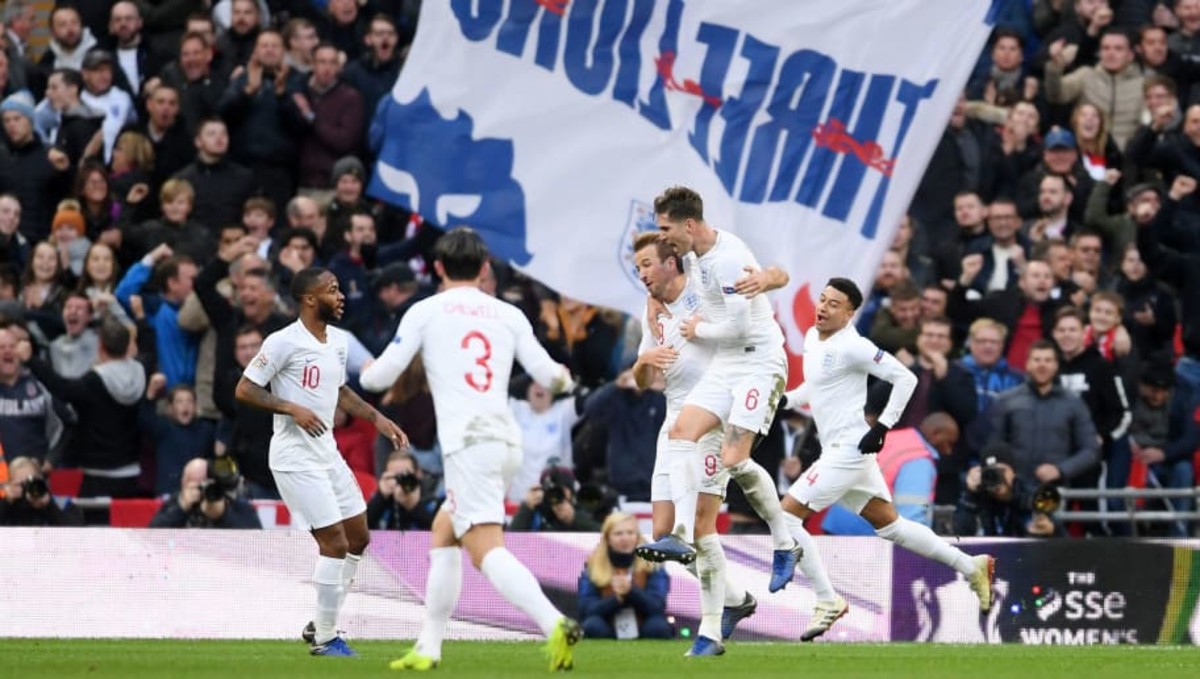UEFA Nations League Victory Would Crown Greatest Ever Year for English Football

There is no greater achievement in football than winning the World Cup. That's absolutely indisputable. Completely irrefutable.
...BUT.
And, it's a big, history-defining, era-classifying 'BUT', there comes a point when a certain level of domination is reached across the board which allows this achievement to be matched, if not surpassed.
I know, it's crazy. I'm a Gen Z GOAT-labelling obsessive who cares more about last week's Europa League final and UEFA's latest answer to the Confederations Cup than the greatest moment in English football history, just because it was 53 years ago. I should be sectioned. I get it.
But sometimes these things need to be said, and sometimes, very occasionally, celebrating recent accomplishments doesn't equate to foolish recency bias. This may just be one of those occasions, even if, as it stands, it remains clouded in hypotheticals.
Should England progress to the Nations League final on Sunday 9th June, after beating the footballing world's preeminent resurrectionists in the Netherlands, and should they then beat one of Portugal or Switzerland, it would unquestionably represent an unprecedented year's work since that infamous campaign in Russia.
DJ, run it back, because the nostalgic vibes are about to get heavy. 'Three Lions' locked and loaded? Unrepentantly stirring BBC penalty montage consumed for the 300,000th time? Tears of joy wiped away?
Good, let's get to it.
Now, we can't stay long, but soak it in, because, unless you are over the age of 35 (give or take), you will never have experienced a summer like it. Indeed, I would argue even Italia '90 couldn't match the levels of excitement that were reached in 2018, owing mainly to greater access and insight into the camp and players, as well as the increased diversity and (dare I say it) likability of this squad.
In fact, even if you believe the overall quality of the team from 1990 to be more impressive, the expectations were undoubtedly greater.
Anyway, as we all know, Gareth Southgate's brave bunch of lads, be them the second-greatest or third-greatest Three-Lions-bearing team at a World Cup, respectably bowed out at the semi-final stage to a generational Croatian team lead by the Ballon d'Or-winning Luka Modric. Close, but no celebratory cigar.
And so, geed up by the country's coming together, English sides geared up for yet another league season with renewed optimism, that was immediately dampened by the likely prospect of Manchester City domination. But this wasn't to be, for Liverpool had other ideas, pushing the Citizens to the second-best points total in Premier League history by themselves putting up the greatest total of any second-placed team in history.
Meanwhile, on the continent, things were coming up white with a red cross all over the shop. Chelsea and Arsenal were motoring through the monotony of a Europa League campaign, and Liverpool and Tottenham were producing ne'er ending fireworks wherever they went.
The semi-finals were set, with the four sides faced with formidable tasks. And then, 20 goals later, 16 of which were scored in the second leg, 13 of which were scored in the second half of the second leg and four of which were scored in a penalty shootout, all four teams had progressed, by hook or by crook.
And, suddenly, for the first time in the history of major European competition, all four final spots were taken up by teams from one country. The self-imposed 'Best League in the World' had finally received its craved conquering of the wider world and a Full English was the order of the day.
But what about 1966? Well, back then there was no UEFA Cup and only one English team, in Manchester United, qualified for the European Cup (as per regulations), and they were ousted by Partizan Belgrade in the semi-finals.
As for the First Division, that was won by Liverpool, who amassed a staggering, er, 61 points from 42 games. Yes, a win only counted for two points, but to contrast with current day, the Reds' 2018/19 side would have amassed 67 points if this scoring system was still in place, and that's without playing four extra games. And they didn't win anyways.
And in 1990, well there were no English teams competing in European competition altogether.
The point is, across both the club and international game and in terms of both financial might and youth academy production, English football has never been in a stronger position. And winning the inaugural UEFA Nations League final would be the icing on the cake.
... And that's all without mentioning the possibility of a victory at the Women's World Cup. Lionesses, you know what to do.









